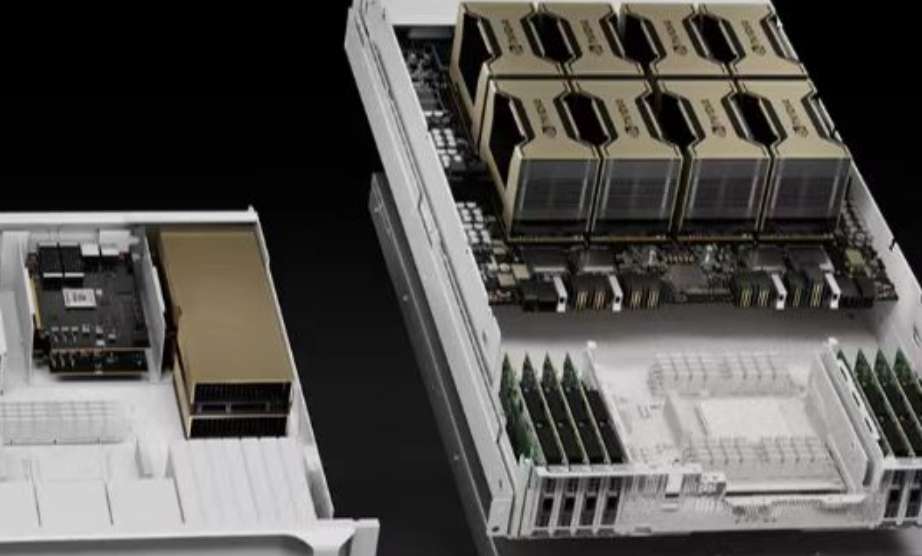NVIDIA Faces Losses of Hundreds of Millions
Advertisements
March 9 marked a significant turning point for the global tech industry, particularly for NVIDIA, the world’s leading supplier of AI training chipsRecent reports from Tom’s Hardware have spotlighted the potential ramifications of the U.Sgovernment's move to impose stricter restrictions on American companies selling advanced computing hardware to Chinese firms, including tech giants Huawei and InspurThe anticipated limitations threaten NVIDIA’s stronghold in one of the largest markets for high-performance computing (HPC).
NVIDIA’s Chief Financial Officer, Colette Cress, addressed these concerns at the Morgan Stanley Technology, Media, and Telecom Conference, expressing that Inspur has played a crucial role as NVIDIA's partner in delivering robust computational power to end customers
The relationship between NVIDIA and these Chinese companies has not just been transactional; it has been built on mutual dependence where NVIDIA’s technology fuels Inspur’s infrastructure solutions, which in turn serve a wide array of Chinese enterprises.
However, Cress’s remarks also hinted at the adaptive strategies NVIDIA plans to pursue in light of these evolving dynamicsWhile she acknowledged the potential for collaboration with new partners across the Asia-Pacific region, she emphasized the importance of adhering to strict export controls mandated by U.SlawThe intricacies of these legal frameworks imply a challenging trajectory ahead for NVIDIA, which could find itself scrambling to secure new partnerships—even as it maintains focus on compliance with regulatory stipulations.
The backdrop to this predicament dates back to May 2019, when the U.S
- Fed Rate Cuts in 2025: The Risk of No Action
- Yen Slides Sharply
- Tech Giants Surge!
- Economic and Market Outlook
- Can Tech Stocks in the US Make a Comeback?
Department of Commerce placed Huawei on an Entity List, making it mandatory for American companies to obtain government-approved export licenses for the sale of hardware, software, and technology to HuaweiThis has drastically reshaped the operational landscape for U.Ssemiconductor companies, such as NVIDIA, which specialize in high-end computing GPUs often sold to Chinese enterprisesAs a direct consequence, NVIDIA's sales to Huawei have been significantly impacted, a reality that has been exacerbated by recent news suggesting further tightening of these restrictions, potentially costing NVIDIA millions of dollars in lost revenue.
The ongoing challenges faced by NVIDIA were compounded when the U.Sgovernment blacklisted Inspur, the world’s third-largest server providerThis brazen move further complicates NVIDIA's ongoing attempts to sell products to Chinese entities, making it increasingly challenging to navigate a market that had previously been a bedrock of its revenue stream.
Last August, the U.S
government introduced new export regulations requiring American manufacturers like AMD, NVIDIA, and Intel to secure special export licenses prior to selling or shipping high-performance computing hardware to ChinaThis regulatory framework effectively limited their ability to transact freely within one of the largest tech markets worldwideIt’s worth noting that the U.Sis not merely restricting sales on certain products; it is, in essence, preventing American chipmakers from disseminating any product built on American technology to Chinese companies, significantly stifling the competitive edge of Chinese firms in the HPC domain.
The specifications of these restrictions entail the prohibition against sales that would allow Chinese entities to construct supercomputers capable of exceeding 100 FP64 PetaFLOPS or 200 FP32 PetaFLOPS, given the cubic footage limitations specified, which is approximately 41,600 cubic feet

Depending on how rigidly these restrictions are enforced, NVIDIA's inability to market its A100, A100X, and H100 product lines to Chinese customers could result in substantial financial losses.
To counter these limitations, NVIDIA has engineered the A800 computing GPU, a product specifically designed to comply with U.Sregulations by not facilitating the construction of supercomputers with capabilities exceeding 100 FP64 PetaFLOPSHowever, if the U.Sgovernment decides to halt approvals for NVIDIA to export the A30, A800, and other GPU variants to Huawei and Inspur, these companies stand to lose hundreds of millions in revenues.
The good news for NVIDIA lies in its near-monopoly within the AI and HPC marketsThe widespread adoption of NVIDIA's CUDA platform in various sectors undoubtedly provides a competitive advantage when seeking out new partners in the Asia-Pacific region
Nevertheless, the challenge remains that NVIDIA continues to require export licenses before it can engage in business with Chinese firms, complicating any immediate transition to new customers.
Notably, Huawei and Inspur are more than just buyers; they offer vital solutions to a myriad of clients that heavily rely on their hardware and services, creating a difficult situation for NVIDIA should it seek to substitute these two key partnersAny initiation of new constraints on selling computing hardware to Chinese chip manufacturers could lead to significant financial ramifications for NVIDIA, disrupting both its revenue flow and its strategic positioning in global markets.
Looking at the broader context, the U.Sgovernment’s persistent pressure on the Chinese semiconductor sector reflects a wider strategy to inhibit the development of advanced chip technologies within China while putting its own companies under strain
Leave Your Comment